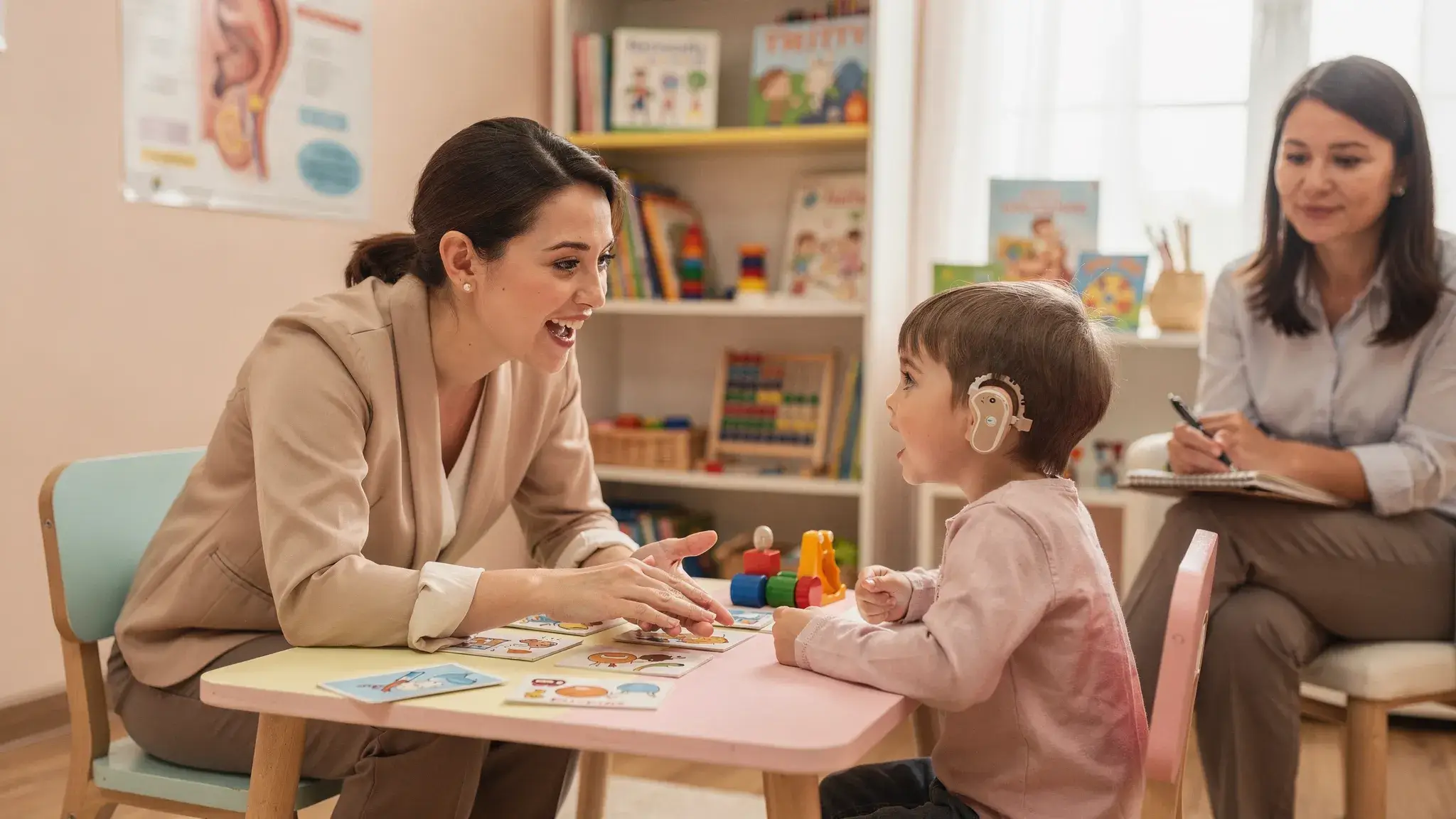- About Us
- Our Services
- Speech Therapy
- Speech and Language Therapies for Adults in Dubai
- Speech and Language Therapies for Children in Dubai
- Accent therapy
- Augmentative Alternative Communication (AAC) Therapy
- Articulation Speech Therapy
- Auditory Processing therapy/ Auditory verbal therapy
- Language Intervention: Speech Delay therapy
- Oral Motor Therapy
- Play Based therapy
- PROMPT/DTTC/RePT for Childhood Apraxia of Speech
- Social communication/Pragmatic language therapy
- Stuttering / Stammering therapy Program
- Spellography Program for Dyslexia
- Voice Therapy
- Home Care Services
- Feeding Therapy
- Physiotherapy
- Pediatric and Geriatric Physiotherapy
- Fall Prevention Programs for the Elderly
- Developmental Delay Treatment for Children
- Cerebral Palsy Management for Children
- Pediatric Orthopedic Conditions
- Osteoporosis Management for the Elderly
- Sports Injuries in Children
- Mobility and Balance Training for Elderly
- Joint Pain Treatment (Knee, Shoulder, Hip)
- Age-Specific Exercise Programs
- Coordination and Balance Exercises
- Orthopedic Physiotherapy
- Neurological Physiotherapy
- Sports Physiotherapy
- Cardiopulmonary Physiotherapy
- Women’s Health Physiotherapy
- Manual Therapy
- Therapeutic Exercise
- Pain Management
- Electrotherapy
- Ergonomic Consultation
- Tele-Physiotherapy Services
- Pediatric and Geriatric Physiotherapy
- Occupational Therapy
- Sensory Integration
- Clinical Psychology & Psychotherapy
- Cognitive Behavioral Therapy(CBT)
- ABA /Behavior Therapy
- Bridge Learning Program
- Group therapy
- Summer/Winter Program
- Telehealth Services
- Training Program/CEU
- Internship/ Observership
- Speech Therapy
- Super Team
- Collaboration
- Training Course
- News/Blogs
- About Us
- Our Services
- Speech Therapy
- Speech and Language Therapies for Adults in Dubai
- Speech and Language Therapies for Children in Dubai
- Accent therapy
- Augmentative Alternative Communication (AAC) Therapy
- Articulation Speech Therapy
- Auditory Processing therapy/ Auditory verbal therapy
- Language Intervention: Speech Delay therapy
- Oral Motor Therapy
- Play Based therapy
- PROMPT/DTTC/RePT for Childhood Apraxia of Speech
- Social communication/Pragmatic language therapy
- Stuttering / Stammering therapy Program
- Spellography Program for Dyslexia
- Voice Therapy
- Home Care Services
- Feeding Therapy
- Physiotherapy
- Pediatric and Geriatric Physiotherapy
- Fall Prevention Programs for the Elderly
- Developmental Delay Treatment for Children
- Cerebral Palsy Management for Children
- Pediatric Orthopedic Conditions
- Osteoporosis Management for the Elderly
- Sports Injuries in Children
- Mobility and Balance Training for Elderly
- Joint Pain Treatment (Knee, Shoulder, Hip)
- Age-Specific Exercise Programs
- Coordination and Balance Exercises
- Orthopedic Physiotherapy
- Neurological Physiotherapy
- Sports Physiotherapy
- Cardiopulmonary Physiotherapy
- Women’s Health Physiotherapy
- Manual Therapy
- Therapeutic Exercise
- Pain Management
- Electrotherapy
- Ergonomic Consultation
- Tele-Physiotherapy Services
- Pediatric and Geriatric Physiotherapy
- Occupational Therapy
- Sensory Integration
- Clinical Psychology & Psychotherapy
- Cognitive Behavioral Therapy(CBT)
- ABA /Behavior Therapy
- Bridge Learning Program
- Group therapy
- Summer/Winter Program
- Telehealth Services
- Training Program/CEU
- Internship/ Observership
- Speech Therapy
- Super Team
- Collaboration
- Training Course
- News/Blogs
Table of Contents
ToggleFeeding Therapy Treatment in Dubai
- Home
- Our Services
- Feeding Therapy
Feeding therapy
Feeding therapy, also known as pediatric feeding therapy or pediatric feeding and swallowing therapy, is a specialized area within healthcare focused on evaluating and treating feeding and swallowing difficulties in infants, children, and adolescents. The primary goal of feeding therapy is to enhance oral intake, improve nutrition, and develop overall feeding skills. This comprehensive intervention involves collaboration among various healthcare professionals to address the complex needs of individuals with feeding challenges.
Assessment and Evaluation
The first step in feeding therapy is a thorough assessment conducted by feeding therapists to evaluate the individual’s feeding and swallowing abilities. This process includes:
- Clinical Observations: Direct observation of the individual during feeding to identify any difficulties or abnormal behaviors.
- Standardized Evaluations: Use of specific tests and assessments designed to measure feeding and swallowing capabilities.
- Parent/Caregiver Interviews: Gathering detailed information from parents or caregivers about the individual’s feeding history and current challenges.
- Collaboration with Healthcare Providers: Consulting with other healthcare professionals to understand any medical, developmental, or sensory issues contributing to feeding difficulties.
The goal of the assessment is to pinpoint the specific nature and severity of the feeding difficulties and to develop a tailored treatment plan.
Treatment Planning
Based on assessment findings, feeding therapists create a personalized treatment plan in collaboration with the individual and their family. This plan addresses the underlying causes of feeding difficulties and sets specific goals. Strategies and techniques included in the treatment plan aim to:
- Improve oral motor skills.
- Enhance sensory processing.
- Establish better mealtime routines.
- Ensure adequate nutritional intake.
The ultimate objective is to enable safe, efficient, and enjoyable feeding experiences.
Intervention Techniques
Feeding therapy employs a variety of evidence-based techniques and interventions, such as:
- Oral Motor Therapy: Exercises and activities designed to strengthen the oral muscles, improve coordination, and enhance sucking, chewing, and swallowing skills.
- Sensory Integration Therapy: Techniques to address sensory processing issues related to food textures, tastes, smells, and temperatures, including desensitization methods and sensory play.
- Behavioral Therapy: Strategies to address behavioral challenges, reduce mealtime stress, and promote positive feeding behaviors.
- Feeding Environment Modification: Creating a supportive and structured mealtime environment to minimize distractions, encourage participation, and facilitate successful feeding experiences.
- Parent and Caregiver Education: Providing guidance on feeding and swallowing disorders, mealtime strategies, nutritional requirements, and home-based interventions to ensure consistency and progress outside therapy sessions.
Collaboration and Multidisciplinary Care
Feeding therapy often involves a multidisciplinary team of healthcare professionals, such as:
- Pediatricians
- Gastroenterologists
- Allergists
- Occupational Therapists
- Speech-Language Pathologists
- Registered Dietitians
This collaborative approach ensures that all aspects of the individual’s feeding difficulties are comprehensively addressed, considering medical, developmental, sensory, and behavioral factors.
Progress Monitoring and Follow-Up
Feeding therapists continually monitor the individual’s progress, adjusting treatment strategies as needed. Regular follow-up sessions and reassessments are conducted to:
- Track improvements.
- Address emerging challenges.
- Provide ongoing support to the individual and their family.
Empowering Families and Caregivers
A critical component of feeding therapy is empowering families and caregivers with the necessary knowledge, skills, and resources to support the individual’s feeding development long-term. Therapists work closely with families to:
- Educate them about feeding and swallowing disorders.
- Provide practical strategies for implementing feeding interventions at home.
- Ensure consistency and support outside of therapy sessions.
Conclusion
Feeding therapy is a specialized healthcare intervention aimed at addressing feeding and swallowing difficulties in infants, children, and adolescents. Through comprehensive assessment, individualized treatment planning, evidence-based interventions, collaboration with other professionals, and ongoing support for families and caregivers, feeding therapists play a crucial role in helping individuals achieve safe, efficient, and enjoyable feeding experiences. This ultimately leads to improved overall health and well-being.
Make Appointment
Make Appointment
Testimonials
What Parents Say
Send us an email if you wish to talk to any of them. For more reviews, please go to Google reviews.

My experience with bridges speech centre has been great. My child is attending OT in the center and we are happy and proud with the progress Mrs. Richa has made. The therapists are very supportive and knowledgable in selecting techniques to suit with our child's requirements . Their monthly review and evaluation is remarkable. I highly recommend bridges speech centre to anyone looking for an affordable and professional therapy for their child....

We were asked to consult a speech therapist for my son. As parents we were quite skeptical about this whole process. However, once my son started attending Dr Rupali’s sessions we noticed a drastic improvement in his speech. He used to speak only a few words but within the 1st four sessions he started speaking up-to 5 words sentences. I also learnt to manage my child’s emotions better with Dr Rupali’s guidance. She is very cooperative and patiently answer all questions.

We took our 21 month old daughter to Bridges speech center following her cleft palate surgery as she needed Speech therapy. Ms.Rupali was recommended to us by both our Pediatrician and ENT specialist. The staff at Bridges are qualified, warm and friendly. My daughter loved to attend the speech therapy sessions. Through various techniques and simulations provided during these sessions, I can see considerable improvement in my daughter's speech. Lastly I would say, no child is same, as parents we need to be patient and trust the process.

Rupali was excellent. In just couple of sessions she helped my child overcome difficulty in pronouncing ch and sh sound. Thanks very much.Highly recommend for children who will need assistance in speech therapy.
Blog & Article
Our Latest Blog & Articles
Sensory Integration Therapy at Home for Children with Sensory Challenges
When a child gets overwhelmed by everyday sounds, refuses certain clothes because they...
Auditory Verbal Therapy vs Speech Therapy: What’s the Difference?
After a hearing screening, an ENT appointment, or even a note from school,...
How to Help a Stuttering Child at Home and When to Seek Speech Therapy
If your child repeats sounds, stretches words, or gets stuck mid sentence, it...
How to Help a Child with Dyslexia Spell Better at Home
If your child studies hard but spelling still seems unpredictable, you are not...
Aphasia vs Apraxia: Understanding the Difference
The words sound almost identical when you first hear them. Aphasia. Apraxia.Most people...
Myofascial Trigger Point Therapy for Muscle Pain, Stiffness, and Movement Relief
Muscle pain that keeps circling back has this annoying rhythm to it. You...







